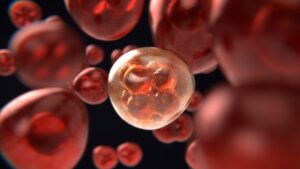 Fanconi anemia (FA) is a rare inherited disorder that mainly affects the bone marrow. This condition causes decreased production of all types of blood cells. FA is caused by a defective repair of DNA interstrand crosslinks and to date, mutations in over 20 genes have been linked to the disease. Advances in science and molecular biology provide new insight between FA gene mutations and the severity of clinical manifestations. In this report the current and promising therapeutic options for this rare disease are highlighted. The current standard treatment for FA patients is hematopoietic stem cell transplantation, a treatment associated to exposure to radiation or chemotherapy, immunological complications, plus opportunistic infections from prolonged immune incompetence or increased risk of morbidity. New arising treatments include gene addition therapy, genome editing using CRISPR-Cas9 nuclease, and hematopoietic stem cell generation from induced pluripotent stem cells. Also the revolutionary developments in mRNA therapeutics as an opportunity for this disease are discussed. Read the full article here.
Fanconi anemia (FA) is a rare inherited disorder that mainly affects the bone marrow. This condition causes decreased production of all types of blood cells. FA is caused by a defective repair of DNA interstrand crosslinks and to date, mutations in over 20 genes have been linked to the disease. Advances in science and molecular biology provide new insight between FA gene mutations and the severity of clinical manifestations. In this report the current and promising therapeutic options for this rare disease are highlighted. The current standard treatment for FA patients is hematopoietic stem cell transplantation, a treatment associated to exposure to radiation or chemotherapy, immunological complications, plus opportunistic infections from prolonged immune incompetence or increased risk of morbidity. New arising treatments include gene addition therapy, genome editing using CRISPR-Cas9 nuclease, and hematopoietic stem cell generation from induced pluripotent stem cells. Also the revolutionary developments in mRNA therapeutics as an opportunity for this disease are discussed. Read the full article here.
382
